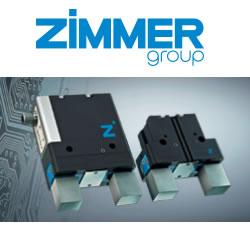Micropsi Industries Automates “Fridge Sniffing” with AI-Supported Robot Control System
BSH Hausgeräte GmbH’s facility in Spain benefits from MIRAI’s ability to handle variances, optimize production processes and relieve human workers of highly complex tasks
BERLIN, Germany—November 16, 2021—Micropsi Industries' artificial intelligence (AI)-supported robot control system MIRAI now automates previously manual leak detection for leading global household appliance manufacturers such as BSH Hausgeräte GmbH. In conjunction with Atec GmbH Automatisierungssoftware, Micropsi offers this leak testing as a complete solution that provides a quick, reliable, and cost-effective remedy to manual leak detection tasks and other complex industrial processes, lowering ongoing operating costs and reducing maintenance.
"AI-driven systems such as MIRAI independently derive solutions in the event of variances such as changing lighting conditions or workpieces whose position or composition deviates," said Ronnie Vuine, CEO, Micropsi Industries. "This allows them to optimize production processes and relieve human employees of highly complex tasks for the first time. In fact, AI gives robots hand-eye coordination and enables them to react to their environment in real time. Robots controlled by MIRAI learn numerous tasks in just a few hours. They only need to be guided by a human worker a few times under different lighting conditions and other variances: The camera observes the process and records the obtained data."
The features offered by AI and MIRAI specifically benefit complex quality control processes such as the leak testing, which plays an important role in the production of refrigeration and air conditioning technology. With the help of a sniffer probe, which is currently guided by humans along copper pipelines and compressors, factories check seals and soldered joints for leaking gas and refrigerant. This enables precise leak detection. If a leak remains undetected, cooling is not ensured in the long term. This makes the product defective or even unusable.
Industrial everyday life: the search for the leak
Whether a heat pump, refrigerator, car air conditioner or room air conditioning technology, leak testing is just as relevant for manufacturers and service companies of air conditioning and refrigeration equipment as it is for companies in the automotive or semiconductor industries. Before the Micropsi and Atec solution, it has not been possible to automate this special quality control because solder joints vary. Each refrigerator back, for example, is unique in terms of the position, color and shape of solder points, creating an insurmountable obstacle for a classic industrial robot.
The monotonous, time-consuming and sometimes ergonomically unfavorable task of guiding the sniffer probe to within a millimeter of the pipes has so far been reserved for humans. The MIRAI/Atec solution quickly, reliably and cost-effectively automates this process, with the MIRAI AI controller enabling the solution to be used generically in diverse industrial sectors.
Automated leak testing at BSH
At the Spanish site of BSH Hausgeräte GmbH, MIRAI-controlled robots have the right nose for this "refrigerator sniffing." The Bosch Group company uses the control system to detect and inspect refrigerator coolant lines.
"BSH proposed a challenging use case to Micropsi," explains Javier Chasco Echeverria, engineer for Industry 4.0 at BSH. "Detecting leaks in the refrigeration circuit has always been a manual process due to the high variability in the position of the parts, the appearance of the connections and the high number of variants. With MIRAI's machine learning technology, we solved a problem that could not be solved with traditional automation technology. All cycle time, accuracy and performance KPIs were achieved and our productivity and quality improved. We see this as a key technology that we will continue to work on and will consider MIRAI for other demanding applications in the future."
About Micropsi Industries
Micropsi Industries provides artificial intelligence-based software for industrial and collaborative robots (cobots). MIRAI, its flagship product, allows these robotic arms to be controlled in real time, in direct response to sensor information. This is made possible by AI that enables the robots to learn from humans and deal with variances so they can more easily and cost-effectively operate in dynamic environments. With offices in Berlin and New York, Micropsi Industries is working to make task-specific machine learning a reality in industrial automation. The company's vision is to reliably automate work processes while reducing the effort required. Learn more at: https://www.micropsi-industries.com
Featured Product

